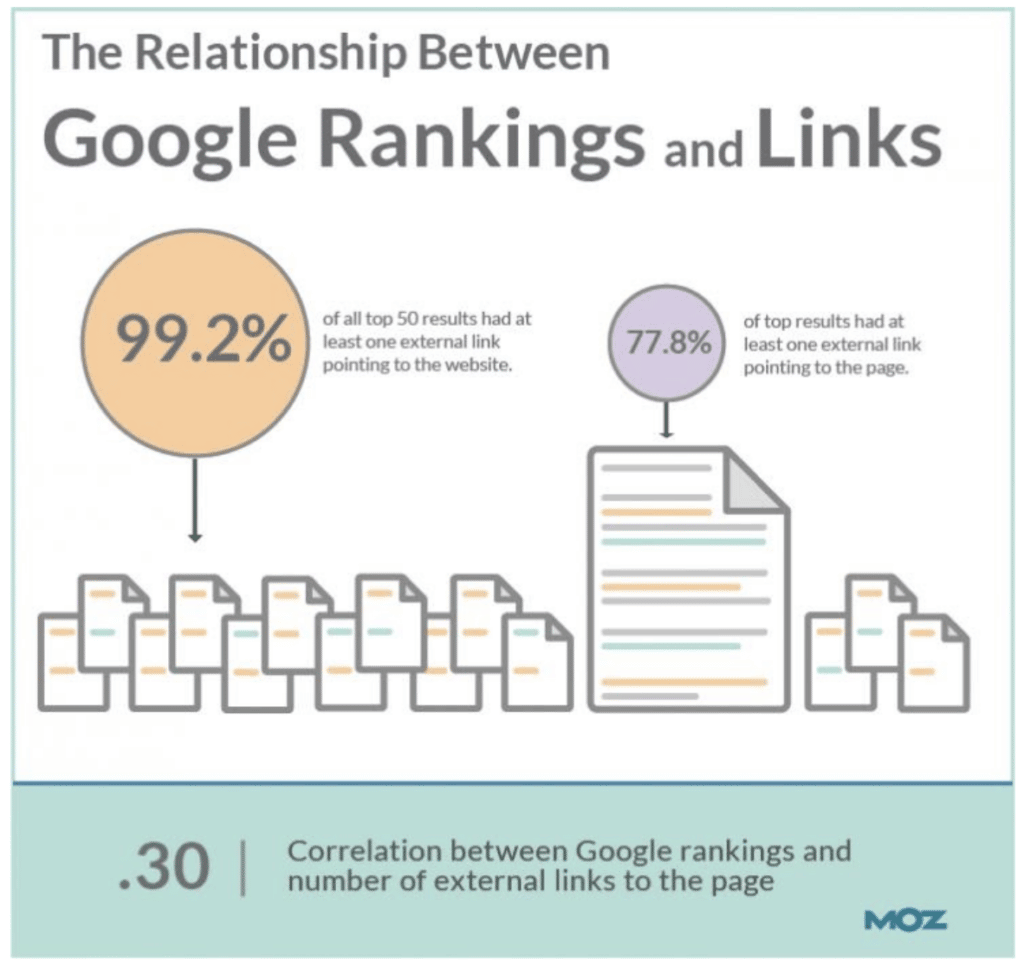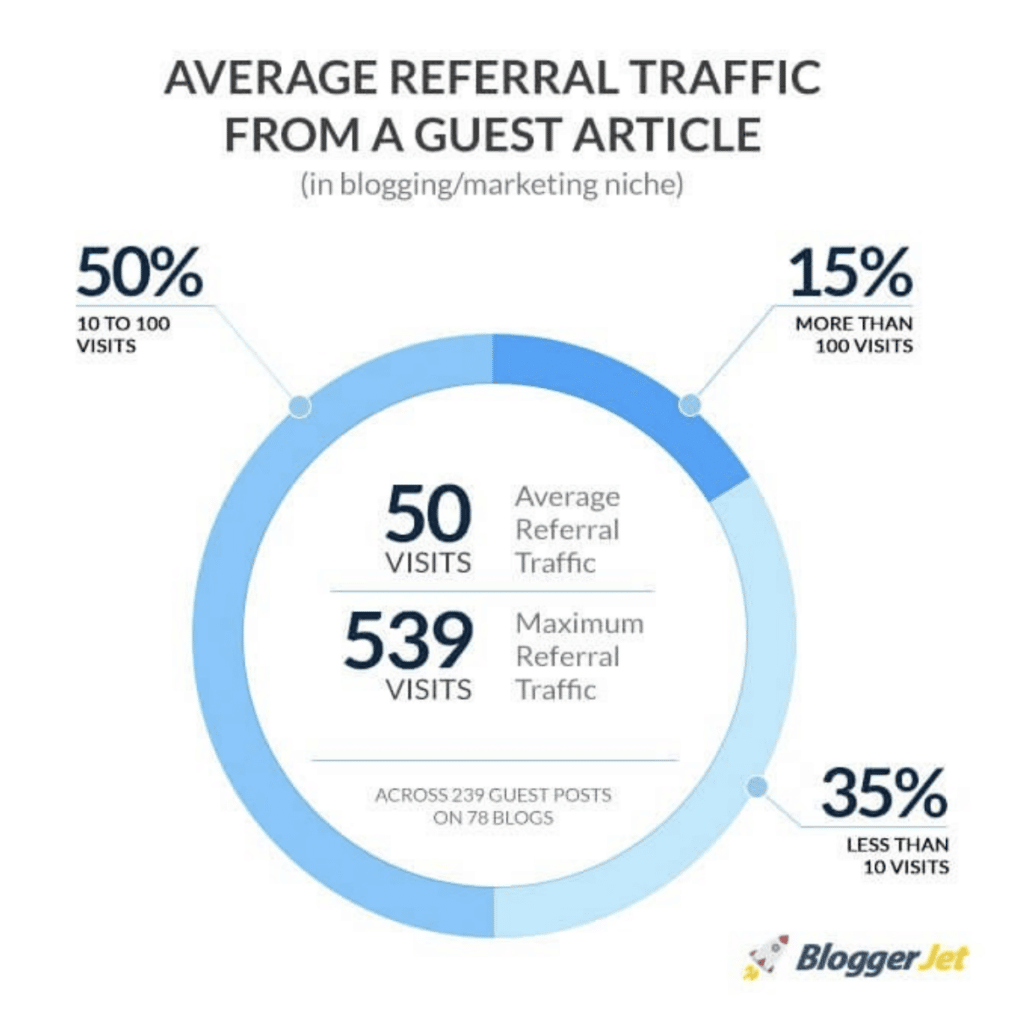There’s no doubt that SEO is an essential piece of your digital marketing strategy. But while you’re doubling down on blogging and web pages, it’s important that you also focus on the SEO value that’s not part of your website.
This is referred to as off-page SEO — the actions you take on other digital channels that can impact your SEO. This includes a number of things, from social media mentions and sharing, online reviews, backlinks, and influencer marketing, to name a few.
Here’s a look at the building blocks of off-page SEO and what you can to do boost your rankings.
Why Does Off-Page SEO Matter?
SEO ranking factors and algorithms are constantly on the move, but one thing remains clear: on-page SEO and off-page SEO are both factored into how well your content ranks.
Off-page SEO is just as critical as the content you publish on your own website, especially since 91% of your web pages will never rank organically on Google. Or put another way, your website alone isn’t enough to help you climb the search results page.
It’s common to think that you have no control over what happens off of your website. But here’s the truth: People who talk about your brand, mention your name, or share or link to your content don’t always do so organically. Much like on-page SEO, you can influence your off-page SEO, too.
Here are some of the most effective places to pour your time and resources into:
Link Building
Link building refers to creating an army of backlinks that direct to your content from third-party sources. For example, a backlink from a news website to one of your blog posts would be considered a backlink.
Why Link Building Matters
Google hasn’t been shy about telling people that backlinks matter. They’re a symbol of trust and authority, a testament that other people have found your content reputable enough that they want to link to it.
In fact, many SEO experts agree that you can’t rank without backlinks.

Here’s the thing: anyone can write a blog post or publish an e-book these days. But content for the sake of content doesn’t make it valuable. Google sniffs out valuable content from “the rest” by seeing what other people have deemed to be valuable. The reasoning here is that if other people like it, they’ll share it with others by linking to it.
The Right and Wrong Ways to Build Links
Though link building is king, there are a few things you’ll want to do to get the most from your links (and a few things you need to avoid).
First, understand that not all links are created equal. A link from a high-authority source will carry more weight than a link from a brand new, low-traffic site. Also, you’ll want to avoid getting links from spammy websites, as this could actually negatively impact your rankings. When you’re trying to get backlinks, make sure you consider the source.
The best practice is to build partnerships with other blogs and website owners to earn backlinks. Reach out to the publisher or blogger to see if you can collaborate on some content or ask them to give you a backlink. You can also start the process by giving other sites backlinks and asking them to return the favor.
When you do earn a backlink, make sure it’s a “do follow” link so that search engines will index it. If it’s a “no follow” link, it will not have an impact on your SEO.
Guest Blogging
By definition, guest blogging is a blog written by you but posted on someone else’s blog. Guest blogging can be an excellent way to earn backlinks, plus it gives you more control over where those backlinks direct.
The Benefits of Guest Blogging
Guest blogging is more than just a backlink-building strategy. It’s also a sign of your authority and expertise on a particular subject. A published piece of content on a third-party website with your name attached to it gives you instant celebrity status and puts you in front of an audience other than your own. You automatically get more brand exposure and build trust in your readers that you know what you’re talking about.

How to Pitch to Guest Blogs
Some websites post guest blog opportunities on their website. You can fill out a form that goes straight to the editor with your introduction and topic idea. However, many other websites will consider allowing you to guest post if you create a strong pitch.
Think about it this way: guest blogging is a win/win for you and the blog. They get free, valuable content to share with their readers and you get a high-authority outlet to share your knowledge.
That said, you’ll need to have a great topic idea in mind before you reach out to the site owner. The topic should align with their audience and be something they haven’t covered in the past. It should also offer their readers plenty of value.
Keep in mind that editors likely receive tons of guest post pitches, so you’ll need to make yours stand out. A powerful pitch will contain the following:
- Address the editor by name
- State your topic and a couple of sentences on what it’s about
- An outline of the blog post if they ask for it
- A sample or two of your previous work
Keep your pitch short and to the point. This way, you’ll have a much better chance of having your pitch read and responded to.
Check out this list of guest posting opportunities to help you get started.
Social Media Signals
Briefly, I want to mention the value of social media signals. Though likes and shares are largely vanity metrics, they also matter to off-page SEO because they indicate engagement and interest in your brand. They can help you monitor your online reputation and allow you to join conversations about your brand so you can maintain a positive image and earn new leads and traffic.
For more digital marketing insights, head back to my blog.






4 Responses